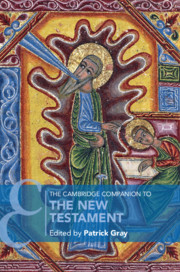Book contents
- The Cambridge Companion to the New Testament
- Cambridge Companions to Religion
- The Cambridge Companion to the New Testament
- Copyright page
- Contents
- Map
- Contributors
- Preface
- Abbreviations
- Part I Historical Context
- Part II The New Testament Writings
- Part III Methods and Modes of Interpretation
- 17 The Canon of the New Testament
- 18 Historical-Critical Methods
- 19 Literary Approaches
- 20 Social Sciences, Social History, and Ideology
- 21 The New Testament and Theology
- Index
- Cambridge Companions to Religion (continued from page iii)
- References
20 - Social Sciences, Social History, and Ideology
from Part III - Methods and Modes of Interpretation
Published online by Cambridge University Press: 23 April 2021
- The Cambridge Companion to the New Testament
- Cambridge Companions to Religion
- The Cambridge Companion to the New Testament
- Copyright page
- Contents
- Map
- Contributors
- Preface
- Abbreviations
- Part I Historical Context
- Part II The New Testament Writings
- Part III Methods and Modes of Interpretation
- 17 The Canon of the New Testament
- 18 Historical-Critical Methods
- 19 Literary Approaches
- 20 Social Sciences, Social History, and Ideology
- 21 The New Testament and Theology
- Index
- Cambridge Companions to Religion (continued from page iii)
- References
Summary
This chapter discusses a range of approaches to the New Testament that have emerged in recent decades, often in explicit reaction to historical-critical methods, under the rubric of social history and ideology.
- Type
- Chapter
- Information
- The Cambridge Companion to the New Testament , pp. 382 - 400Publisher: Cambridge University PressPrint publication year: 2021

